During some AML training last week, someone asked me a question that I am regularly asked, and – despite this (you’d think I’d learn) – I still don’t have a good answer to it. In short, they wanted to know how far back to go with source of wealth enquiries – how many years, or how many generations? I talked about best endeavours, and feeling comfortable with the information you are given, and seeing that it all fits together into a coherent story, blah blah blah, but the truth is that there is no clear answer to this question. Certainly no AML legislation or guidance (as far as I know – please tell me if I’m wrong) puts a time limit on this; no-one says that you have to go back four generations, or fifty years, or to Adam and that apple. And so – as with so much of CDD these days – it comes down to a judgement call: have we found out enough to satisfactorily mitigate the risk in this case?
Some smarty-pants (usually me…) will point out that nowadays financial institutions are delighted to have the Kennedys and their chums as clients, despite Joe Senior’s rather murky start in business. And how many of our leading companies in the UK were founded on the proceeds of the slave trade? Even with more recent criminality, it seems that it takes only a few years for illegal proceeds to attain a patina of respectability – particularly if those who own them are in a position to quash any suggestions of irregularity. The divine Imelda Marcos and her relatives are once again riding high in the Philippines, and efforts to trace the origins (and indeed the current location) of the family fortune are being stymied. The Marcos lawyers are still claiming that the late Ferdinand was a very successful gold trader – which is news to the Filipino tax authorities. The head of the local Commission for Good Governance is circumspect when asked about the source of the Marcos wealth, saying “Your guess is as good as mine”. Sadly for MLROs, this is unlikely to be an acceptable CDD entry on client files.






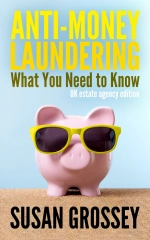

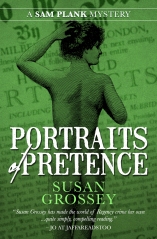



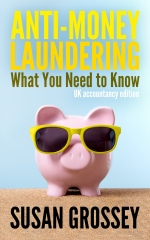

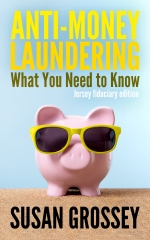

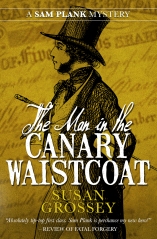




Hi Susan
This made me think of when I worked for Matheson Trust Company in Jersey (now sold) – when it came round to licensing trust companies JFSC were a bit uncomfortable with the source of wealth of Jardine Matheson as whole being that the empire has been founded on opium trading! They managed to get past that though.
Best wishes Vicky
……………………………………………………..
Victoria Wilkinson
Compliance Support Officer
DOMINION | expertsinwealth.com
P.O. Box 603, 3rd Floor, Charter Place, 23-27 Seaton Place, St. Helier, Jersey, JE4 0WH
victoria.wilkinson@dominionfs.com
DDI +44(0)1534 765262
Jersey | Malta | London
Dear Vicky
This illustrates the dilemma perfectly – thank you! I grew up in Asia, and Jardines was such a big name – although of course we all knew how it started…!
Best wishes from Susan
Good morning Susan
I think a debate like this highlights the fact that MLRO’s are always stretched for time and as such, whether we agree or not, they have to make a judgement call to what they regard as a reasonable understanding and hence acceptabilitiy of source of wealth. If an MLRO had only one case to consider, (utopia?) then yes they could spend an infinite amount of time to dig and dig. But the reality is that there are many alerts in any one day hence that judgement call that the position is reasonable.
Sadly in a legal enquiry say two years later there is likely to be little regard that the decision was made in the context of a number of equally difficult situations. It is that one decision that is scrutinised. We can say all we like, but I don’t think we shall ever reach a level when the MLRO is not stretched timewise – either by a high volume of alerts or competing job requirements if a “part time” MLRO
No legislation can ever be written to a prescriptive level because no two cases are the same. The only answer in my opinion is to fully document the conclusion drawn to include the rationale of the decision. Hopefully with full documentation, law enforcement will conclude that everything reasonable was done. – What would the man on the Clapham Omnibus conclude? – by the way do they still use that expression?
Regards
Paul
Dear Paul
You have hit the nail right on the head here: it all comes down to documentation. It’s like you were told by your maths teacher: always show your working-out on the exam paper, because even if your answer is wrong, you’ll be given credit for a good method.
As for your Clapham omnibus question, it got me thinking – so do have a look at my blog on Thursday!
Thanks as always for your contribution – always very much valued.
Best wishes from Susan
This is indeed a tough question. I can imagine someone wanting to be very zealous, and wanting to go back all the way to Adam. But to what good use? Are we responsible for the mistakes our ancestors made? Are we responsible for the mistakes our (grand)parents made? If a child turns his parent’s money laundering business around to an ethical business, should there not be some leniency? If we punish too harshly someone like this, don’t we risk that they then might turn to criminal or at least unethical dealings? Imagine the son of an opium lord introducing a new crop, eg. coffee or cocoa (so now you know what my addictions are! 😉 and giving the farmers new ethical opportunities. Should we not applaud actions like these? We can seize this new coffee / cocoa lord’s assets, and thus the farmers are without income, prey for another opium lord. Because this is part of the harsh truth, somewhere down the money laundering line, there are poor people who barely survive. And if someone gives them a decent chance, we should support that somehow. (yeah, yeah, it’s not that fair; but hey, don’t we already know that life is not fair?)
I think that apart from fighting actual money laundering, we must teach our children good values. Because even children of criminals can be taught good values, if we just show them the difference it makes. So in stead of being harsh on that young person who obviously is clueless, why not guide them and put them on the right road? We can make a difference!
Dear Claire
Coming from a family with a rather murky past (a distant ancestor served as a pirate on a ship called the Ranger in the 1720s – it did not end well…), I am all for forgiveness! But you make a serious and very important point about driving people to crime by barring them from legitimate ways to earn a living – this has wider implications than our current discussion.
As a magistrate, I often see crime running through a family, and although it is tempting to dismiss it simply as “the family business”, I think it’s more attributable to the lack of guidance for the children from good role models – as you suggest, even children of criminals can be taught good values, if we can get access to them.
(Readers, Claire was once married to a money launderer, and has fought hard to keep their children away from his line of work.)
Best wishes from Susan
By the way Susan, it seems my ex has a younger partner to take over the business. He is semi-retired now. So I hope I am off the hook when it comes to keeping my kids away from his business.
A semi-retired money launderer – I wonder whether he has a “pension”! And here’s hoping that he leaves your kids alone now.
Indeed it’s a question to which we all hope we come up with the right answer, or at least a considered one. The best advice I have had – and use on a daily basis – is how would you, personally, feel defending your decisions when standing trembling in front of a magistrate? Would your paperwork documenting your reasoning in ticking the boxes stand up to scrutiny? If not then you’re doing it wrong.
Dear Roy
An excellent reminder – thank you. Yes: imagining the dawn raid is a good idea, particularly as we see more MLROs taking the stand and being required to defend their actions (usually years later) – e.g. Michael Wigley.
Best wishes from Susan
Pingback: The man on the Clapham omnibus | I hate money laundering
Pingback: Stately or shameful? | I hate money laundering